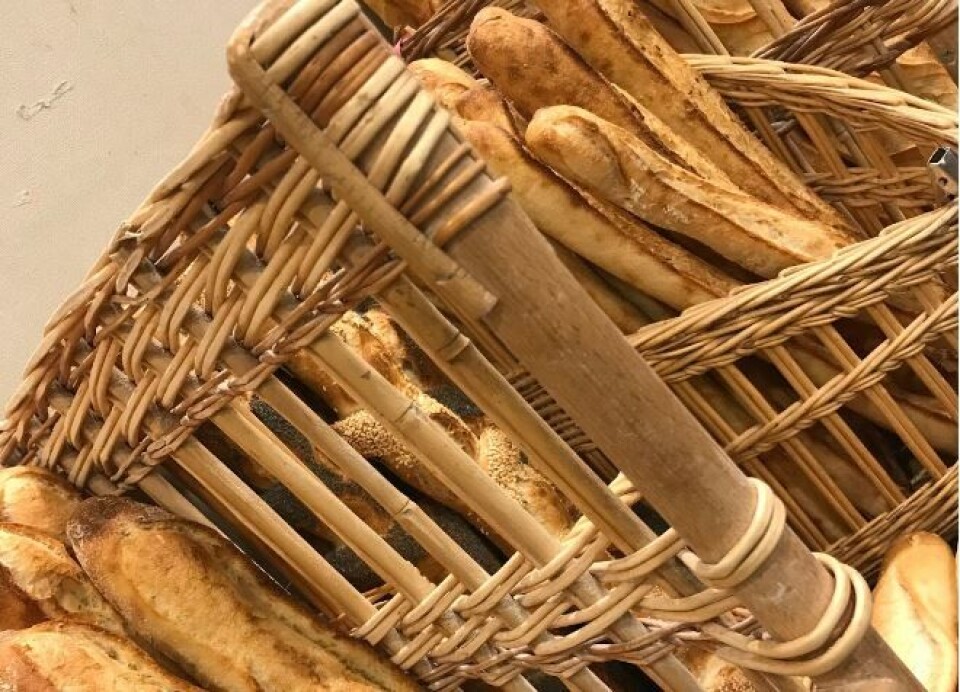-
Visitors to Normandy American Cemetery must soon book in advance
With more than one million visitors last year, the cemetery is one of the region’s most-visited D-Day sites
-
Easter traditions across France: From rattles and hooded processions to giant omelettes
Regional Pâques celebrations highlight France’s cultural diversity
-
Photos: 94 chateaux open their doors to visitors in Dordogne
The fifth Chateaux en Fête festival offers a chance to look around many impressive properties that are usually private
The French obsession with how long baguettes are baked for
Whether ‘blanc’ or ‘bien cuite’, a baguette’s cooking time is an increasingly divisive topic for the French

When journalist Sébastien Thomas posted a simple picture of two baguettes on Twitter, he could hardly have imagined the response it would spark.
The image did not really have viral potential: it was just one bread stick that had spent longer in the oven than its whiter counterpart on the right.
Perhaps, then, it was the text that helped get the tweet 1,000 comments and more than 5.3 million views.
“The baguette on the left is obviously much better than the baguette on the right and I challenge anyone to a duel who would dare to claim otherwise,” he wrote.
While he might have been trying to provoke a reaction, the response is a gauge of just how much the French care about their baguettes, and, in particular, how long they are baked in the oven.
Some claimed the debate was the most French they had ever seen.
So, what are the options, when it comes to baking baguettes?
Bien cuite (well done) is the most traditional option and seemingly Sébastien’s preference.
Read more: Learn from the French: how to order the perfect baguette
People like him argue that cooking the baguette for longer “brings out its aromas” and is easier to digest than bread that has been in the oven for fewer minutes.
There is also a historical reason why bien cuite is so well-established.
Frédéric Roy, a baker from Nice, told BFMTV that between the war and the 1970s, baguettes were made over a wood fire that left a fairly thick crust.
“This allowed the bread to keep longer because at the time in small towns, the baker only passed one to two times a week.”
Dominique Anract, president of the Confédération Nationale de la Boulangerie-Pâtisserie Française, told The Connexion he had observed between Paris and the rest of the country.
He said the regions preferred well-done baguettes, while the French capital was more open to whiter sticks.
“There are really no scientific rules behind it,” said Mr Anract.
But purists, he added, had made their choice.
“If you look at the national baguette championship, bakers cook baguettes bien cuites,” he said.
Read more: Baguette, petits pains: Seven French expressions to do with bread
The next type on the scale you might hear asked for in a French bakery: mi-cuite (less-cooked) or pas trop cuite (not too cooked).
That’s the halfway house between bien cuiteand - to the horror of the traditionalists - the blanche (white) baguette.
Fanny Reigaza, manager of L’Atelier des pains & Co bakery in Suresnes, on the outskirts of west Paris, said her clients ordered about the same amount of well-done and less-cooked baguettes.
But Ms Reigaza and Mr Anract both said more and more people were opting for the softer option, sometimes because of dental implants.
"You go to any baker today, the traditional baguette is baked blond, it is rare that it is really well baked,” Damien Dedun, a baker from Paris, told BFMTV.
“The customer prefers to eat unbaked bread because we've gotten used to it that way, and we obviously adapt to what the customer wants so it's kind of a vicious circle.”
"It's a fashion, a new consumption habit that we owe to supermarkets,” added the baker.
"When mass distribution appeared in the 1980s, it offered the so-called white baguette, very Parisian and mass-produced, and people got used to it. It stayed.”
Related articles
French baguette-baking considered for Unesco intangible heritage list
Five things they don’t tell you about baguettes in France
French ‘cannot tell a good baguette anymore’ says bread historian
























